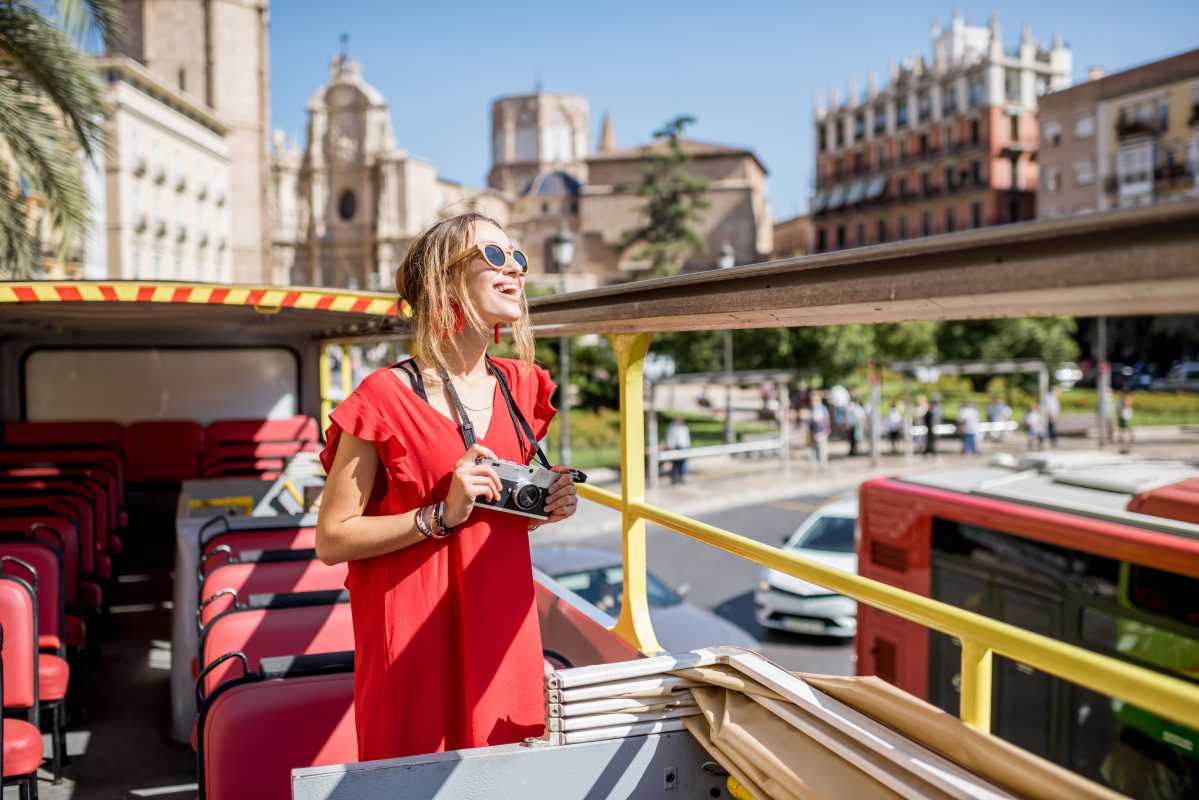The ability to work from anywhere has long been a dream for many. Thanks to advancements in technology, shifting workplace cultures, and a global shake-up caused by the COVID-19 pandemic, this dream is now a reality for millions of workers. For the middle class in particular, this shift has sparked an entirely new way to think about travel, blending professional life with the freedom to explore.
Far from being confined to a two-week vacation, middle-class workers are discovering ways to merge their jobs with their wanderlust, fundamentally changing how and where they experience the world. Here, we’ll take a deep dive into how work-from-anywhere jobs are transforming travel for this demographic—the perks, the hurdles, and the cultural wave reshaping middle-class lifestyles.
The Rise of Remote Work
A major driver behind this shift is the explosion of remote work opportunities. While location-independent jobs have existed for years, they were often limited to highly skilled freelancers, tech workers, or entrepreneurs. However, the pandemic ushered in mass experimentation with remote work, showing that many industries could function without physical offices.
Companies once hesitant to allow telecommuting now offer work-from-anywhere policies as a key perk to attract talent. Middle-class jobs in fields like marketing, accounting, education, and customer service have become increasingly flexible. Tools like Zoom, Slack, and cloud-based platforms make it possible to attend meetings or share files from a beachside café in Bali just as easily as from a suburban office.
For the middle class—where budget-friendly, time-efficient travel is often prioritized—this flexibility changes the game. It’s no longer necessary to request vacation days or cram leisure into short holiday periods. Instead, workers can plan extended stays in vibrant cities or secluded retreats while maintaining steady paychecks.
How This Shift Is Changing Travel Habits
The new freedom to work-from-anywhere has given life to a phenomenon commonly referred to as “slow travel.” Unlike traditional tourism, where a hectic schedule crams as much sightseeing as possible into a limited time, slow travel is about experiencing a place more deeply. Remote workers might spend weeks or even months in one location, immersing themselves in local culture, cuisine, and everyday life.
Exploring Beyond the Tourist Traps
For many in the middle class, affordability often dictates travel destinations. Before, options were typically limited to places offering quick, high-value returns on short vacations—think package resorts or city breaks. But when you can integrate work into these trips, longer stays become reasonable. Travelers now look beyond obvious hubs like New York or Paris to less-touristy, cost-effective destinations.
For instance, Portugal has become a favorite for remote workers due to its mild climate, affordable living, and rich history. Similarly, places like Mexico City, Chiang Mai in Thailand, and coastal Croatia have surged in popularity. Middle-class professionals can rent charming apartments, enjoy local street food, and take their laptops to coworking spaces without breaking the bank.
Work-And-Play Blended Itineraries
Another noticeable shift is the tendency to plan "work-cations" or "bleisure" trips—combining business and leisure. For example, a graphic designer from Chicago might spend mornings working on projects and afternoons exploring Lisbon’s cobblestone streets. Families also benefit. Parents who work remotely can extend summer vacations while kids participate in local activities or remote school programs.
The possibility to reshape traditional schedules has led many to rethink their version of “home.” Some have adopted semi-nomadic lifestyles, moving to new countries every few months while retaining job security. This flexibility has even allowed middle-class workers confined by mortgage payments or high living costs to relocate temporarily to areas where their money stretches much further.
Benefits for the Middle Class Traveler
The advantages of this travel-work hybrid lifestyle are undeniable, particularly for the middle class. While once seen as a lifestyle reserved for wealthy digital nomads, more accessible options mean thousands can now seize similar opportunities without uprooting their lives entirely.
- Affordability and Value for Money: Traveling for longer periods can actually make trips more affordable. Instead of expensive short-term accommodations, remote workers often rent apartments or long-term Airbnb stays at reduced rates. We’ve all seen those viral posts about people swapping high rents in cities like Los Angeles for charming coastal homes in places like Mexico or Central America—savings that allow for splurges on unique experiences.
- Exposure to New Cultures: For the middle class, immersion in new cultures is one of the greatest perks. Longer stays allow remote workers to form genuine connections with locals, learn new languages, and enjoy experiences tourists miss out on—like cooking classes, local festivals, or even neighborhood potlucks.
- Personal Growth: Stepping out of the daily commute and corporate bubble has fueled personal discovery. Many say working while traveling improves their work-life balance. The experience of constantly adapting to new environments can also benefit careers, helping workers develop soft skills like problem-solving, adaptability, and cross-cultural communication.
Putting Lesser-Known Destinations on the Map
The influx of middle-class travelers also benefits smaller communities in lesser-visited countries. When remote workers settle in smaller cities, they inject money into local economies and create opportunities for cross-cultural exchange. At the same time, this raises questions about over-tourism and pricing locals out of affordable housing—problems cities like Barcelona and Amsterdam have already faced.
The work-from-anywhere trend shows no signs of slowing down. For the middle class, this could mean even greater access to global opportunities as corporate attitudes shift and digital tools continue to evolve. Looking ahead, we may see new policies, such as reduced visa restrictions for remote workers, or investments into more infrastructure supporting remote lifestyles.
The Counterarguments To Working From Home
Not everyone celebrates the work-from-anywhere revolution. Billionaire Elon Musk, Tesla and SpaceX CEO, has been one of the most vocal critics of remote work. Musk declared remote work not only impractical for many industries but also hypocritical and even “morally wrong” in some cases. His perspective sheds light on critical challenges and trade-offs often glossed over in discussions about remote work.
"The whole notion of work from home is a bit like the fake Marie Antoinette quote, ‘Let them eat cake,’" Musk remarked during a May 2023 interview. He accused Silicon Valley’s remote "laptop classes" of failing to acknowledge the essential workers—think factory staff, delivery drivers, and service industry employees—who don’t have the luxury of remote work.
1. Equity and Morality
Musk’s moral argument revolves around fairness. He believes that tech workers and professionals who demand remote roles often rely heavily on services provided by in-person workers—delivery drivers, custodial staff, and factory-floor employees—to keep their lifestyles afloat. To him, there's a fundamental hypocrisy in expecting others to labor onsite while taking cushy remote roles for granted. This, he argued, is emblematic of privilege.
Critics of remote work often point to industries like healthcare, retail, and logistics, where showing up is non-negotiable. They worry that privileging desk-based roles for remote work could deepen existing social divides, further disadvantaging those in roles traditionally requiring physical presence.
2. Productivity Concerns
Despite studies showing comparable productivity from home, not everyone within the business community is convinced. Musk denounced remote work as distracting and inefficient, noting the "slacking" tendencies among workers unmonitored in their home environments. Many CEOs across industries share his skepticism, requiring employees to return for collaborative work, mentorship, and higher accountability.
To Musk, hybrid and remote work dynamics allow weaker performers to slip through the cracks. Onsite environments, he argues, ensure focus and innovation, which are critical to the success of high-stakes industries like tech and manufacturing.
3. Company Culture and Collaboration
Proponents of return-to-office policies also point out that company culture suffers without face-to-face interaction. Offices serve as spaces for collaboration, unexpected brainstorming, and team bonding—things virtual settings often can't replicate. Musk once said, “How are you going to make great cars if you’re working from home? How are you going to build rockets that go to Mars?”
Even in industries outside of engineering, some leaders argue that prolonged remote work erodes cohesion and loyalty, especially among younger workers just starting their careers. Without proximity to mentors or team leaders, growth trajectories may slow down, leaving attrition or disengagement in their wake.
Impact on Local Economies
A controversial ripple effect of remote work is its impact on local economies—and not always in a positive way. Global migration patterns have brought middle-class remote workers to lower-cost regions like Portugal, Mexico, and Thailand. While this injects money into local businesses, it can also drive up rents and create competition for resources, leading to gentrification. Some locals now resent the influx of relatively wealthy remote workers who take over cities with their "exotic" lifestyles while displacing long-term residents.
Critics say the global spread of work-from-anywhere enthusiasts, even middle-class ones, exacerbates issues in smaller communities already dealing with thin infrastructure and rising costs of living.
While companies are reconfiguring their labor policies to find a balance between remote and in-office work, middle-class professionals will need to weigh these debates against their personal goals. Can they continue to find affordable, ethical, and stable ways to travel while working? Or will backlash—from employers and host communities—eventually force them back into more traditional roles?
 (Image via
(Image via





